In continuing our Podcast Highlights mini series, this week, we’re sharing 19 helpful insights from the Girl Geek X podcast that will help you manage your career by “managing up!”
If you haven’t already subscribed to the Girl Geek X podcast, head on over to iTunes, Spotify, Stitcher, or Google Play and get ready to start binge listening!
This week, Girl Geek X Co-Founder & CTO Sukrutha Bhadouria is breaking out quotes and insights from her favorite release on the Girl Geek X Podcast — Episode 15: Managing Up & Working with Your Manager.
Why this topic matters, and why it’s her favorite episode:

“I think managing up is so hard that no one really taught me, or it didn’t even come to my attention that I needed to focus on it until at least five or six years into my career. It’s really hard to know what’s expected of you and how you’re being evaluated if you don’t know how to manage up. I think the best way is to get on the same page and understand a bit more about what your manager wants to see, what their goals are and how you can help them reach their goals. We don’t talk about this enough, and learning how to manage up earlier could help so many of us move ahead faster.”
15 Helpful Insights on How to “Manage Up”
15. Make your manager look good.
“If you want to be a better employee, think about ‘What is my manager measured on, what would make them look good to their boss?’ What are the metrics, what are the things that they really care about? Then when you’re prioritizing your time, think about your decisions in the context of ‘How can I get my manager promoted?’ Because if you can get your manager promoted, you make everybody look good.” —Gretchen DeKnikker, COO at Girl Geek X
14. Ask questions.
“Have direct conversations. Do not guess. Do not try to guess. For example, I was hired for a job and two weeks in, my boss was fired. My brand new boss was fired. He and a few other people who were brand new to the company and brand new to the team – we were opening a San Francisco office – they were all I had to turn to.
We had a trip planned to go to New York, and my colleague who’d only been there a few months longer, was like, ‘Well, I don’t know if we should go.’ And I was like, ‘I’m going, and I’m going to sit down with the CEO while I’m in New York and I’m going to ask him, ‘What were your expectations for my role? What were the goals? What are the things I could do in the first 90 days?’ Because I don’t have a manager anymore and I need to know.’ It was a brand new role.
If I hadn’t asked questions, I would have worked on the wrong things. I wouldn’t have prioritized my time in a way that would have allowed me to meet expectations.
And my colleague’s first response was this idea that you shouldn’t go meet, you shouldn’t go ask, and you should just sort of sit back and wait to see what happens. I’m so glad that wasn’t my first instinct and that I went in and had the conversation.” —Gretchen DeKnikker, COO at Girl Geek X
“I’ve asked questions like, ‘What is the thing that’s worrying you the most, work-wise? Or what is your biggest goal? What do you want your org to be known for?’ And through that, I get a sense of where I can insert myself and make my manager successful. That is the main thing. When you’re managing up, you want to make your manager a success in their job by basically managing them.” —Sukrutha Bhadouria, Co-Founder & CTO at Girl Geek X and Sr. Manager, Engineering at Salesforce
13. Be vulnerable.
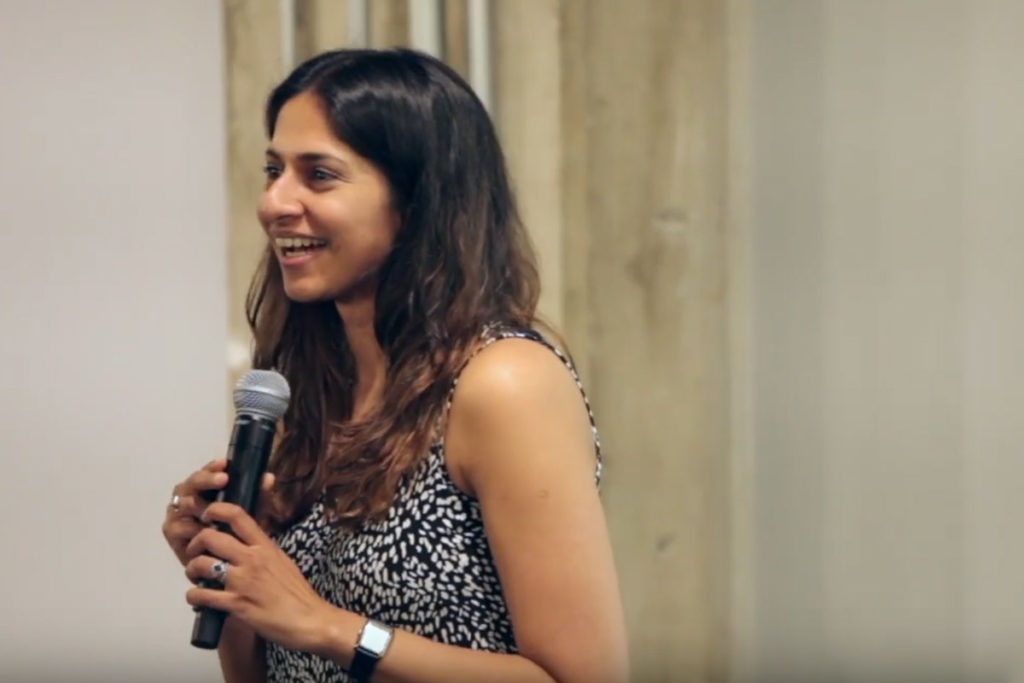
“You have to be vulnerable. You have to say stuff like, “Hey, I care about how you feel about me,” which is a vulnerable place to be. When I worked up the courage to say it, it made a huge difference. Because you are vulnerable, the other person starts being more vulnerable. So yeah, if you feel like you’re working with someone who’s not opening up, honestly the best thing to do is just be vulnerable with them and create that space for them to reciprocate.” —Sandhya Hegde, EVP of Marketing at Amplitude
12. Learn your manager’s working style.
“Try to understand your manager’s style. Do they like going for walks in their one-on-ones or do they prefer it to be a coffee? Or do they prefer to be in a conference room? Trying to understand more about their working style will help you get on the same page. It will break the ice, and then you can get to the real stuff.” —Sukrutha Bhadouria, Co-Founder & CTO at Girl Geek X and Sr. Manager, Engineering at Salesforce
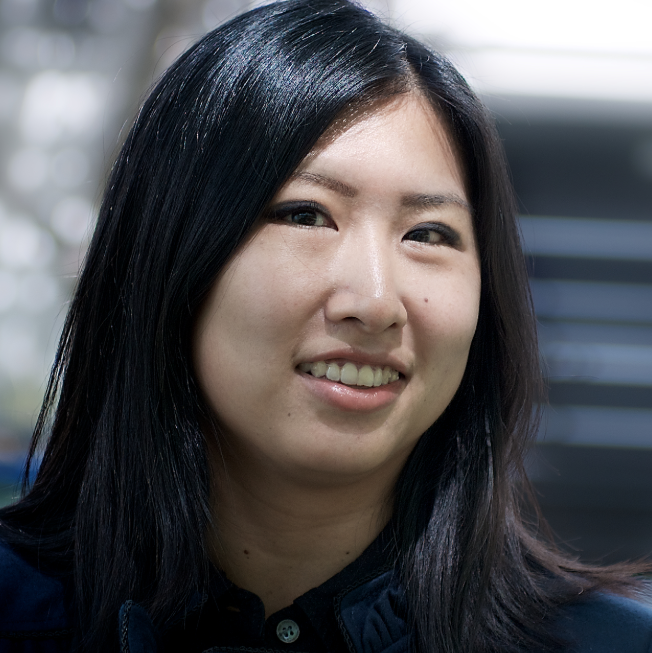
“Managing up is about the willingness to do a little bit of work and ask more questions instead of just being like, ‘Well, my manager is not giving me what I want and I’m just going to be resentful.’ Ask more questions to figure out what the working relationship is going to be with this type of person. I’m sure there are professional tests that will then name this personality and give you hints on how to best interact with this type of person that you can investigate.” —Angie Chang, Co-Founder & CEO at Girl Geek X
11. There’s an app for that!
“There’s a piece of software if you’re using Gmail for work called Crystal Knows – it’ll tell you how to best communicate with anyone through email. If you were to read mine, it would be like, ‘Use short, concise sentences. Make your point quickly. Don’t use a bunch of flowery language.’ That sort of thing. And I thought it was pretty accurate, but it’s super interesting. I think you can get an initial thing for free and then you have to pay, but it’s pretty amazing. Even if you just run it on your own inbox to see, ‘Oh yeah, that is how I like to get emails.’” —Gretchen DeKnikker, COO at Girl Geek X
10. Talk to your manager’s past reports.
“When I get a new manager or assigned to someone new or move to a new org, I talk to people who reported to them for a long time. I try to get a sense of what it’s like to report to them and what their managing style is. Just so that I’m better prepared. It’s helped me so much to know what kind of things they focus on from someone else’s perspective.
I personally don’t think anyone is a perfect manager. A lot of how good of a manager someone is to you is within your control. I have had some good managers in the recent past, but I’ve also seen other people struggle to report to them. Taking things into my own hands and really, really focusing on the relationship and managing up has helped tremendously. I did my homework to get a sense of what it’s like to report to them, what they like and what they don’t like. And I figured out how to work around their dislikes. I haven’t had a situation in a really long time where things just aren’t working, because I invest a lot very early in the relationship.” —Sukrutha Bhadouria, Co-Founder & CTO at Girl Geek X and Sr. Manager, Engineering at Salesforce
“If you’re reaching out to a new manager’s former team members, you just have to approach it from a positive angle. Like, ‘Hey, I’m just trying to do really great. If you could give me three pieces of advice on how to be successful in working with him, what would you say?‘” —Gretchen DeKnikker, COO at Girl Geek X
9. Know when to move on.
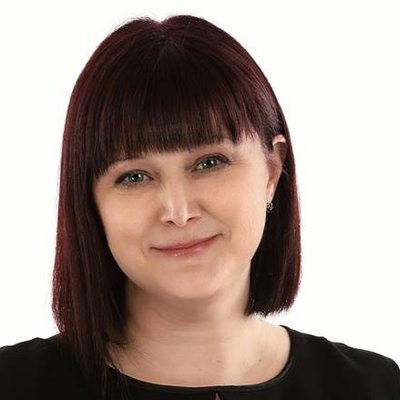
“There are people that are just not people that you enjoy working with, and that’s managers or colleagues or subordinates and at some point, there’s only so much you can do to try to smooth that over. Then you just either take that person at face value and accept that there are just times where things aren’t gonna work, or you go somewhere else.
Sometimes you’ll have a manager and you just know that they are never going to lift you up. They are never going to put you center stage. They are always going to keep you in their shadow. I’ve had those, and you have to move on. You absolutely have to move on. You cannot let someone steal your spotlight. Not on your career path.” —Gretchen DeKnikker, COO at Girl Geek X
8. Ask for a performance review.
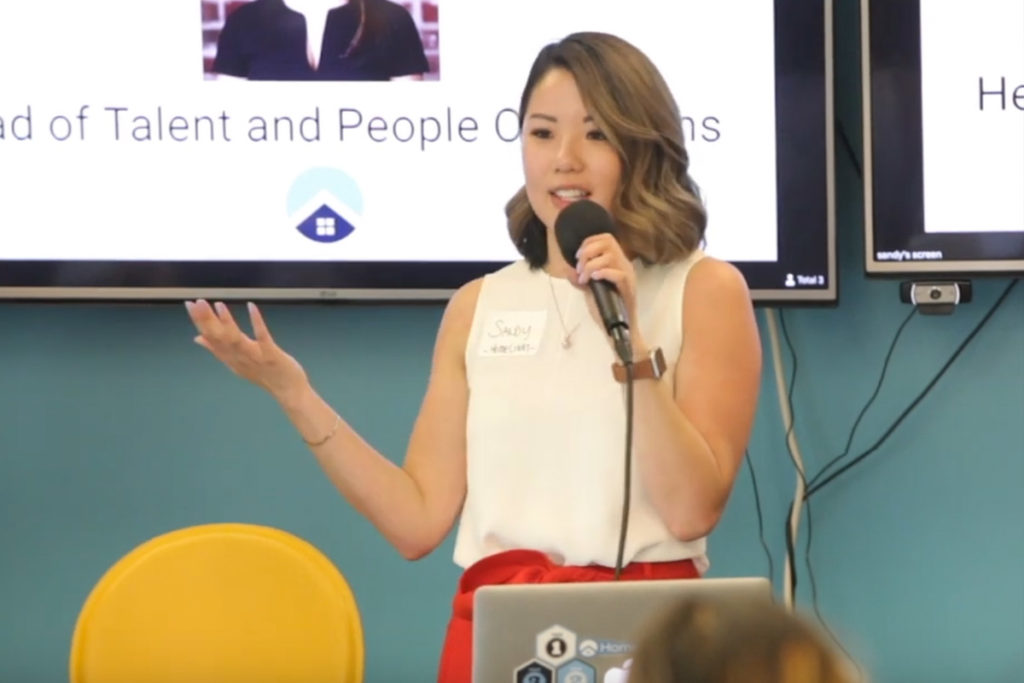
“Incorporating performance data is crucial to the business, as well as your own career growth. If your manager has not spoken with you for the past quarter or past six months about how you’re doing from a performance standpoint, it’s super important to make that calendar invite and make them have that conversation.
Especially working in a startup, these things kind of get out of hand when we’re trying to do like 100 things at once. But before any of us start analyzing a new opportunity, it is just necessary to have conversations with people that are mentoring you and that are working with you directly.” –—Sandy Liao, Head of Talent, Culture & People Operations at HomeLight
7. Be objective & use data when navigating a challenging relationship.
“Using data is a great way to ask for help and make progress with your manager. It’s like, ‘Okay, we set these goals and I didn’t meet two of them, so here’s what I need to meet the rest.’ If you’re able to kind of frame these conversations with your manager objectively, then that’s one way to get help.
Take it back to an objective place of like, ‘We’re here to do this job. These are the goals along those lines and can you just tell me the extent to whether or not I’m fulfilling that?’ I think being able to bring the conversation back to that is an effective way to manage a more challenging relationship.” —Rachel Jones, Podcaster at Girl Geek X
6. Be specific when asking for help.
“Probably the hardest part of this when you’re earlier in your career is that you may not know exactly what you need to hit your goals. It’s hard to articulate to your manager, this is exactly why. ‘If I had XYZ, then I feel like ABC would…’ Right?
I think it can be dangerous if you’re like, ‘Oh well if I had this one piece of software, I could do this better. Or if I had an extra person, I could do this better.’ Those are hard cases to make to your manager, particularly if there’s an impression that you’re not hitting your goals already.
You want to be very specific on what it is that you’re asking for and what you think the ROI will be. Because a fuzzy ROI is a hard argument to make to a manager to get additional resources.” —Gretchen DeKnikker, COO at Girl Geek X
5. Take responsibility for your career growth.
Don’t think that your career growth is just fully your manager’s responsibility. It is just as much yours. And so if you don’t see those conversations coming up, you need to be bringing it up.
As a manager, I’m super excited and motivated to help people who seem like they want to be helped and who are motivated as well. It’s really difficult to grow someone’s career when they’re just not as motivated to do it. And that’s fine too. Sometimes people want to just stay at their level. That’s totally cool. But if you really want to grow, you want to be bringing it up a lot with your manager. —Sukrutha Bhadouria, Co-Founder & CTO at Girl Geek X and Sr. Manager, Engineering at Salesforce
4. Know who your manager is investing in.
“Your manager controls your advancement and your visibility within the company. So if it seems like your manager is investing in other people and not investing in you, rather than just being a manager who doesn’t really invest in anyone in their team, definitely consider whether this is the right place for you. Because a manager can have a huge impact on your career, and you don’t want to be begging for attention from someone who’s just never going to give it to you.” —Gretchen DeKnikker, COO at Girl Geek X
3. Find a mentor.

“Some of the best mentors that I’ve come across have been people who were my managers in the past, maybe at a different company or in a different line whom I have respected and trusted, but because they are not my manager anymore there is a different type of relationship where it can be more mentoring as opposed to managing.
There’s a lovely inflection there that happens. So kind of seek out into your network and find those people that you’ve worked closely with, or that managed you — directly or indirectly. See if they can help mentor you in your next path or next effort.” —Vidya Setlur, Staff Research Scientist & Manager at Tableau Software
2. Maintain relationships with past managers.
“I keep really strong relationships with managers… and they’re people that I go back to when I’m looking for a new job. Not necessarily for them to hire me, but they know me so well, and when I’m trying to figure out what I’m good at, what I like doing, and what direction might I go in, their input is helpful.
A past manager is someone who knows you really well to be able to kind of give their two cents, even if they haven’t been working with you recently.
I mean, not all of your managers are people that you want to necessarily keep taking advice from, but I think I’ve been really fortunate that most of my previous managers are people that I want to reach out to. I still go back and can be like, ‘I don’t know what I want to be when I grow up, help me!’ And they do.” —Gretchen DeKnikker, COO at Girl Geek X
1. Remember that your manager is human.
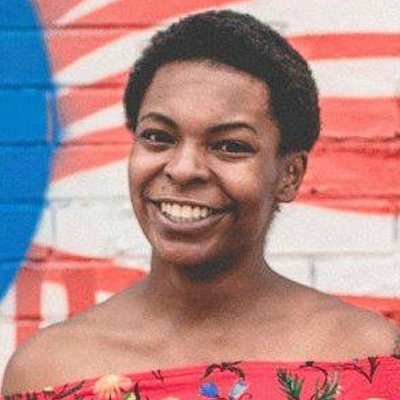
“Knowing how awkward the transition into management can be for people is definitely something to keep in mind when you’re working with your manager. A lot of people are put into this role without getting any kind of specific training or support on what it means to be a manager. Keeping that in mind when you’re interacting with your managers or setting expectations for what that relationship should look like. Definitely focus on the work that you have to do to maintain that relationship and drive your career forward, and involve your manager in that.” —Rachel Jones, Podcaster at Girl Geek X
Check out the full episode or podcast transcript for more great insights on managing up and managing your career, or subscribe to our YouTube channel for even more insightful content on topics that matter to women and allies.
About the Author
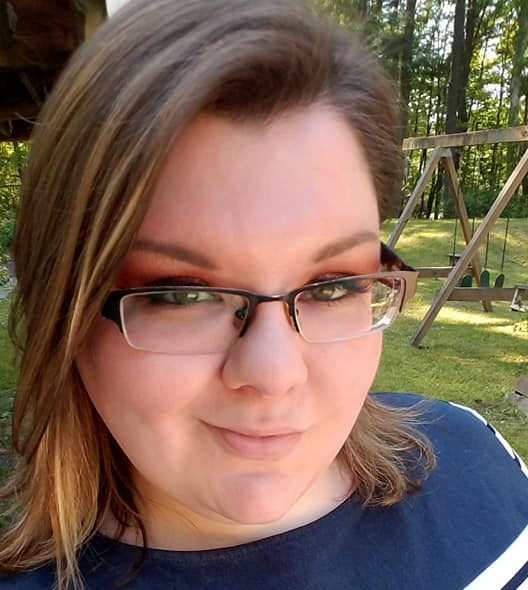


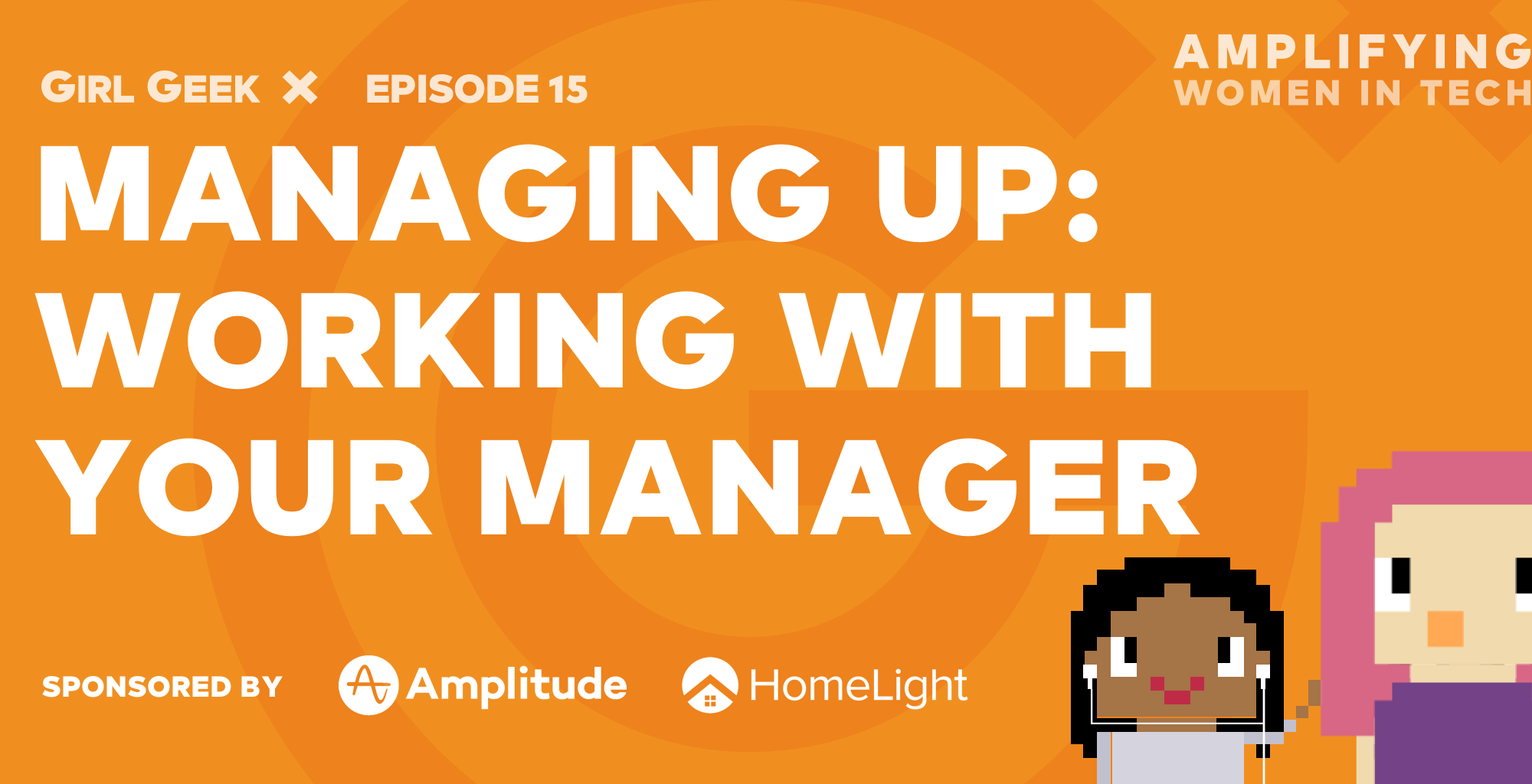

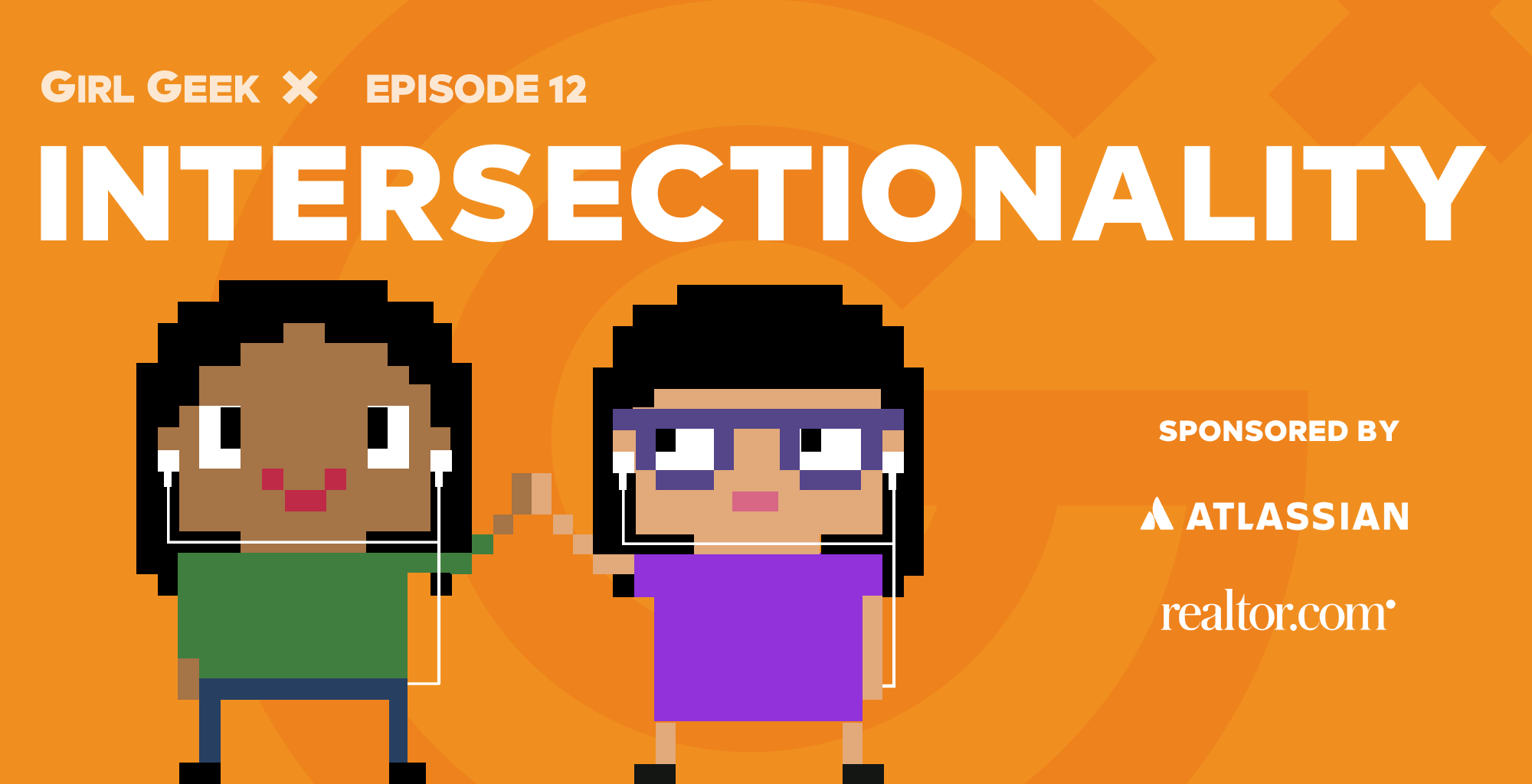

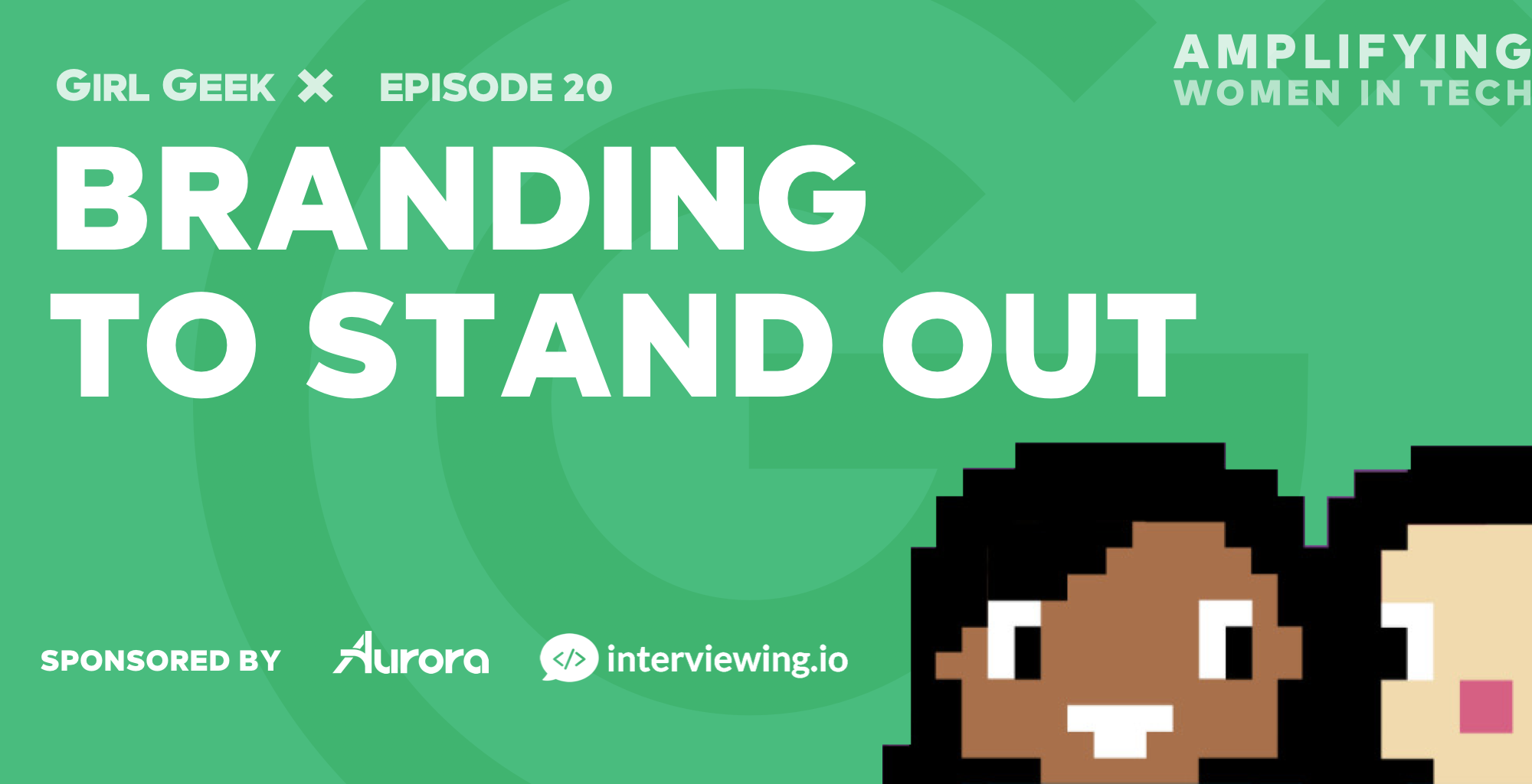
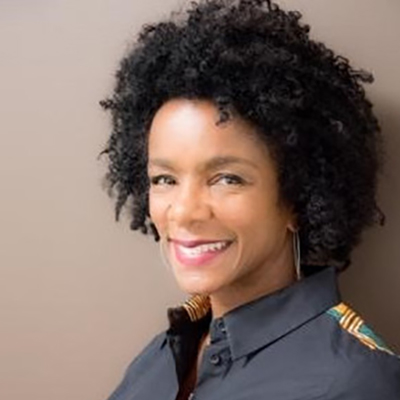

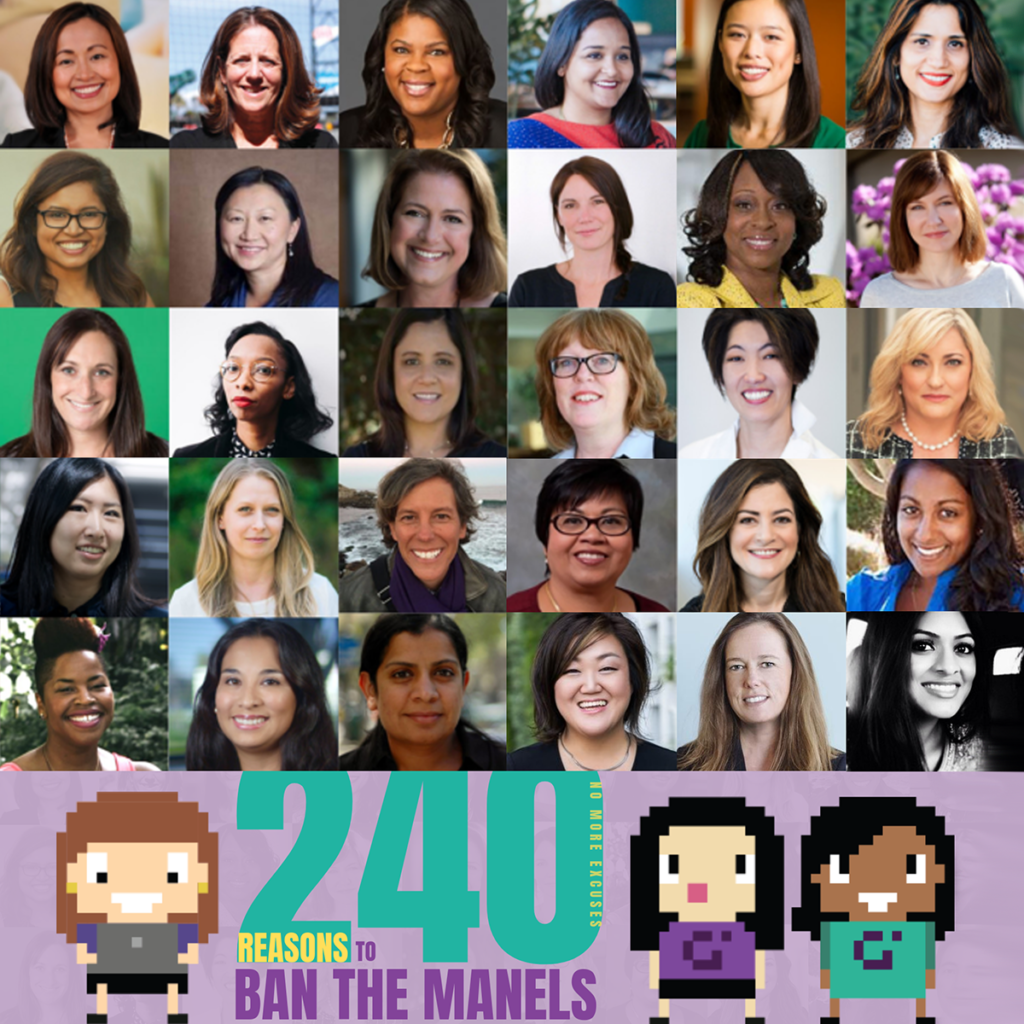

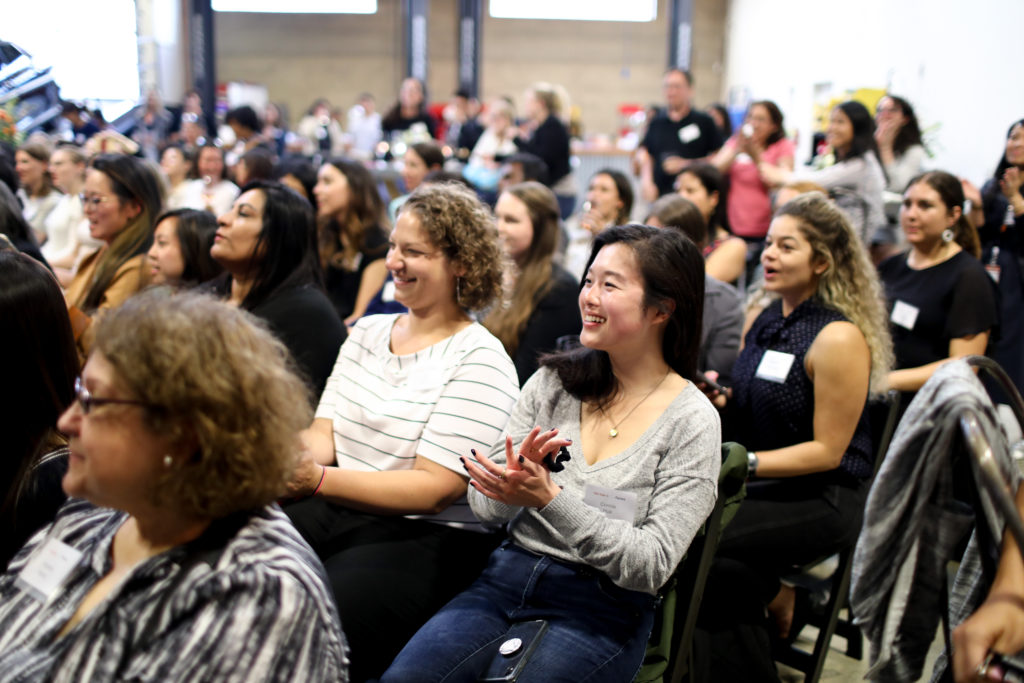

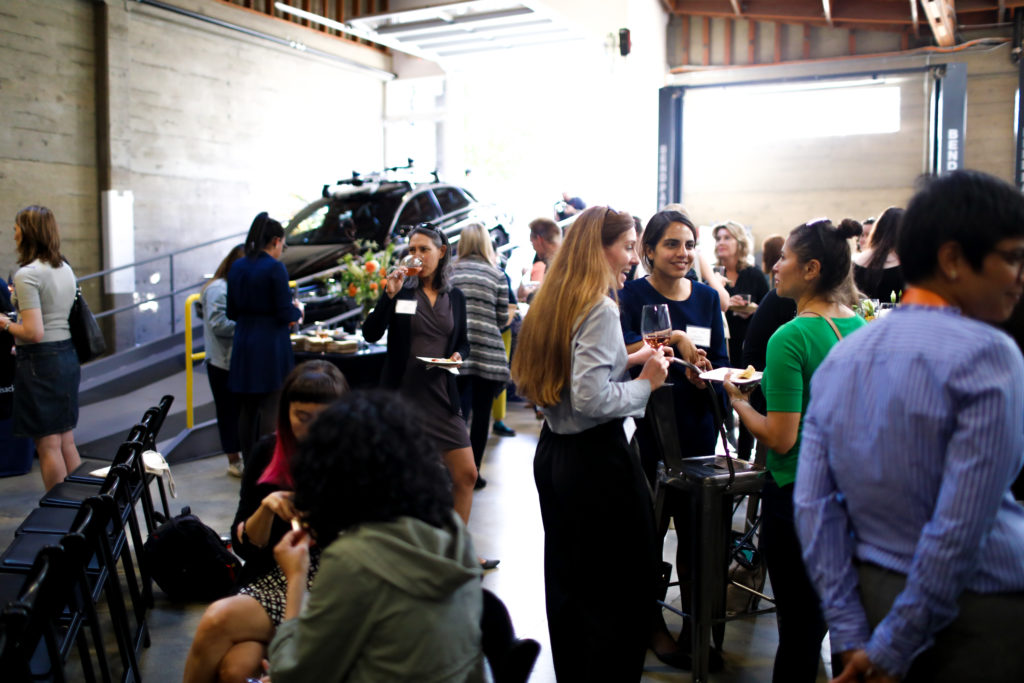
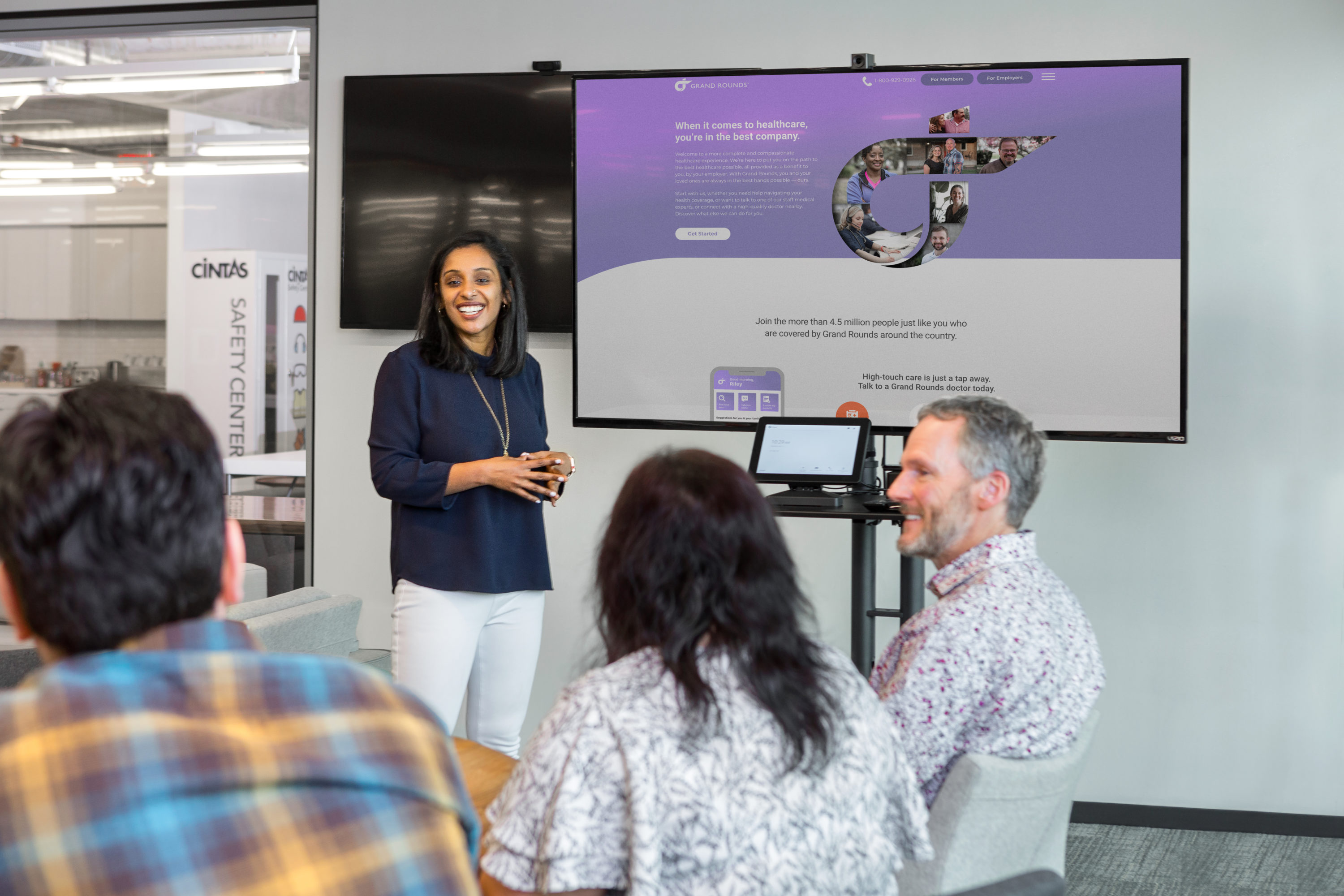
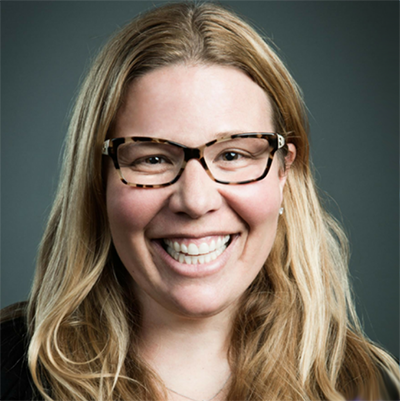

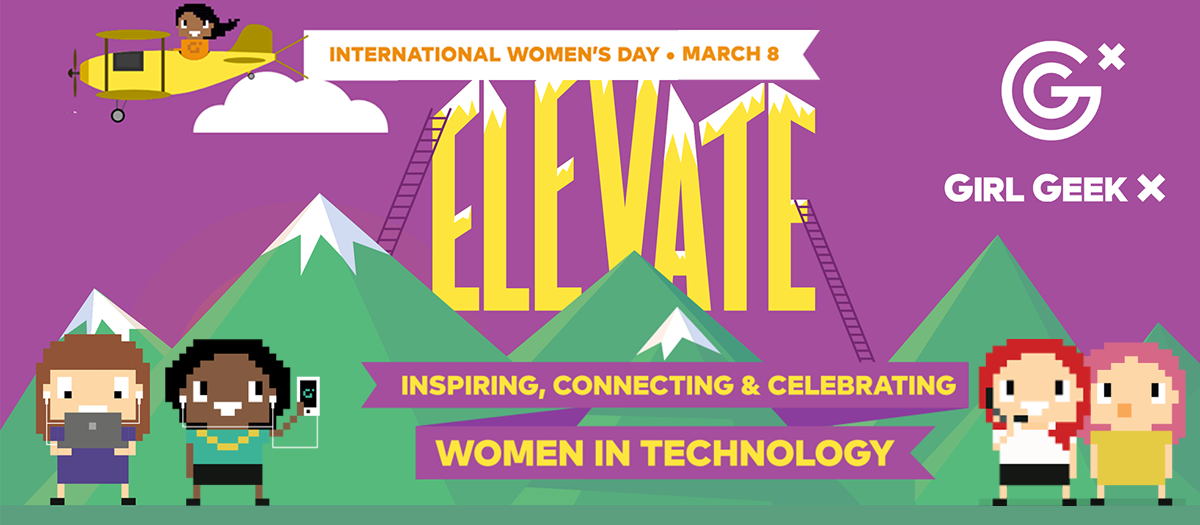
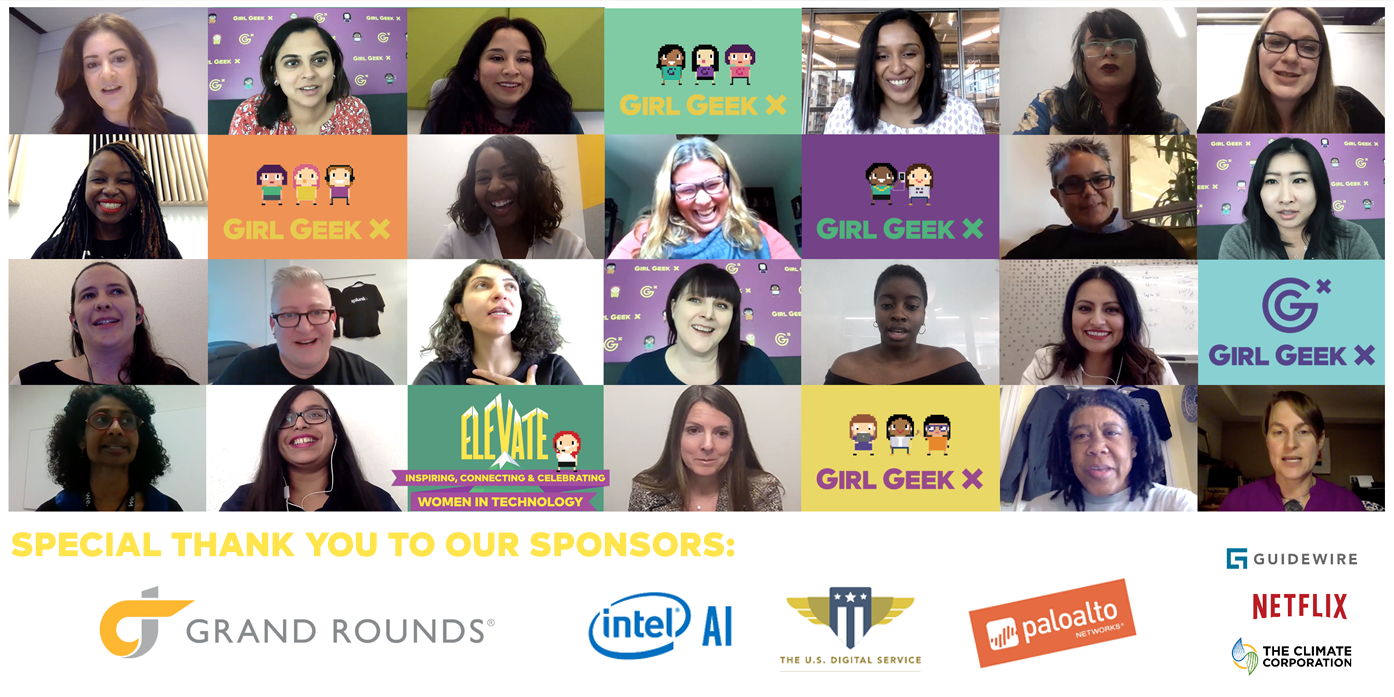

 Every time I start a new job or a new thing, right at the beginning, there’s always a setback. I took the risk, and after seeing it through, I kind of failed up… and that’s okay. It’s okay to fail forward. I was challenged, and I couldn’t be happier that I did it. But every day, it felt like the worst struggle ever.”
Every time I start a new job or a new thing, right at the beginning, there’s always a setback. I took the risk, and after seeing it through, I kind of failed up… and that’s okay. It’s okay to fail forward. I was challenged, and I couldn’t be happier that I did it. But every day, it felt like the worst struggle ever.”
